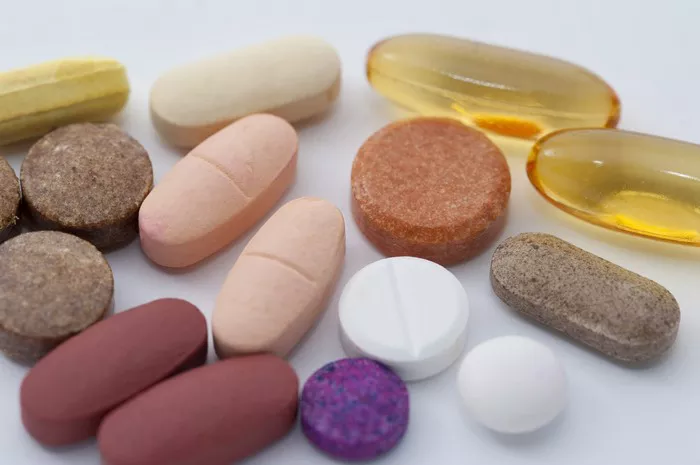Men’s health encompasses a broad spectrum of concerns that vary across different age groups. From adolescence to old age, men face unique challenges related to energy levels, muscle mass, heart health, prostate health, and cognitive function. These concerns underscore the importance of a comprehensive approach to wellness that includes proper nutrition, regular exercise, and targeted supplementation.
Categorization of Supplements
Vitamins: Essential for various bodily functions, vitamins play a crucial role in men’s health. Vitamin D supports bone health and immune function, while B vitamins are involved in energy metabolism and nervous system health.
Minerals: Minerals such as zinc and magnesium are vital for testosterone production, muscle function, and overall vitality. Zinc, in particular, is crucial for prostate health.
Antioxidants: Coenzyme Q10 (CoQ10) and other antioxidants help combat oxidative stress, which can contribute to aging and chronic diseases like cardiovascular issues.
Omega-3 Fatty Acids: These essential fatty acids are renowned for their heart-healthy benefits, including reducing inflammation and lowering the risk of heart disease.
Probiotics: Gut health is increasingly recognized as central to overall well-being, and probiotics support a healthy balance of gut flora, aiding in digestion and immune function.
Specific Herbal Supplements: Herbal supplements like saw palmetto and ashwagandha have been traditionally used to support prostate health and reduce stress, respectively.
Potential Benefits of Each Category
Vitamins: Vitamin D supports immune function and bone health, while B vitamins help convert food into energy and maintain a healthy nervous system.
Minerals: Zinc is essential for testosterone production, while magnesium supports muscle function and relaxation.
Antioxidants: CoQ10 protects against oxidative damage and promotes heart health.
Omega-3 Fatty Acids: These fats reduce inflammation, support brain health, and lower the risk of heart disease.
Probiotics: They promote digestive health, support immune function, and may even positively impact mood.
Specific Herbal Supplements: Saw palmetto may help manage symptoms of benign prostatic hyperplasia (BPH), while ashwagandha may reduce stress and improve overall vitality.
Individual Supplement Profiles
Vitamin D
Overview: Supports immune function, bone health, and mood regulation.
Evidence: Studies link vitamin D deficiency to various health issues, including weakened immune function and bone density loss.
Dosage: Recommended daily intake varies but typically ranges from 600 to 2,000 IU.
Side Effects: Excessive intake can lead to toxicity, so it’s essential to monitor levels.
Considerations: Especially important for individuals with limited sun exposure or darker skin.
Zinc
Overview: Crucial for immune function, testosterone production, and wound healing.
Evidence: Zinc deficiency is associated with impaired immune function and reduced testosterone levels.
Dosage: Recommended daily intake is around 11 mg for adult men.
Side Effects: Excessive intake can interfere with copper absorption and cause gastrointestinal issues.
Considerations: Particularly important for men with low testosterone levels or frequent illnesses.
Omega-3 Fatty Acids
Overview: Essential for heart health, brain function, and inflammation control.
Evidence: Numerous studies demonstrate the cardiovascular benefits of omega-3 fatty acids.
Dosage: Recommended intake varies, but consuming fatty fish twice a week provides sufficient omega-3s for most individuals.
Side Effects: High doses may increase the risk of bleeding, so caution is advised for those on blood-thinning medications.
Considerations: Ideal for individuals with a family history of heart disease or cognitive decline.
Probiotics
Overview: Promote gut health, aid digestion, and support immune function.
Evidence: Research suggests probiotics can improve symptoms of irritable bowel syndrome (IBS) and reduce the risk of antibiotic-associated diarrhea.
Dosage: Effective doses vary depending on the strain, typically ranging from 1 to 10 billion colony-forming units (CFUs) per day.
Side Effects: Mild gastrointestinal symptoms like bloating or gas may occur initially.
Considerations: Beneficial for individuals with digestive issues or frequent antibiotic use.
Ashwagandha
Overview: An adaptogenic herb that helps reduce stress, improve energy levels, and support overall vitality.
Evidence: Studies suggest ashwagandha can lower cortisol levels and improve stress resilience.
Dosage: Effective doses range from 250 to 600 mg per day of standardized extract.
Side Effects: Generally well-tolerated, but high doses may cause gastrointestinal upset.
Considerations: Suitable for individuals experiencing chronic stress or fatigue.
Lifestyle and Dietary Considerations
Supplements should complement, not replace, a healthy lifestyle. A balanced diet rich in fruits, vegetables, lean proteins, and whole grains provides essential nutrients for optimal health. Regular exercise helps maintain muscle mass, cardiovascular health, and mental well-being, while adequate sleep is crucial for recovery and overall vitality.
Safety and Quality
When choosing supplements, opt for reputable brands that adhere to stringent quality standards. Look for third-party certifications like NSF International or USP Verified to ensure purity and potency. It’s essential to consult with a healthcare professional before starting any new supplement regimen, especially if you have pre-existing health conditions or are taking medication. Individual needs vary, so personalized guidance is invaluable in maximizing the benefits and minimizing the risks of supplementation.
Conclusion
In conclusion, a holistic approach to men’s health involves addressing specific nutritional needs through targeted supplementation while prioritizing a healthy lifestyle. By incorporating key supplements, maintaining a balanced diet, staying active, and prioritizing sleep, men can optimize their overall well-being and thrive at every stage of life.
FAQs
What are the top 3 supplements to take?
Fish oil, probiotics, and vitamin D are among the top three supplements recommended by health experts. Fish oil provides omega-3 fatty acids, probiotics support gut health, and vitamin D is crucial for bone health and immune function.
What supplements should a 38-year-old man take?
For a 38-year-old man, a multivitamin, omega-3 fatty acids, and vitamin D are beneficial. A multivitamin fills potential nutrient gaps, omega-3s support heart and brain health, and vitamin D aids bone strength and immune function.
What is the best supplement to take every day?
A high-quality multivitamin is often considered the best supplement for daily use. It provides a broad spectrum of essential vitamins and minerals to support overall health and well-being, helping to fill potential nutrient gaps in the diet.
Related topics:
The Ultimate Guide to Choosing the Protein Powder for Men’s Lean Muscle
Top 3 Herbs for Male Breast Growth
Supplements for Men’s Heart Health: Enhancing Cardiovascular Wellness


